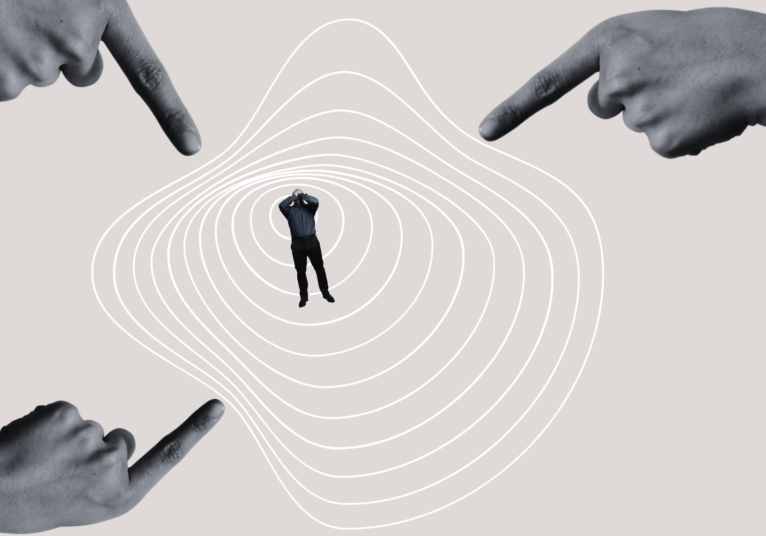Leave entitlements can be a tricky business for employers, particularly when the employee is an expectant mum – and, after a recent tribunal ruling, especially if the pregnant employee has severe morning sickness.
The Victorian Civil and Administrative Tribunal (VCAT) has found an employee’s severe morning sickness is a “disability” but has rejected the bulk of her discrimination claims, including that her employer failed to make reasonable changes to her hours and conditions.
 The telco retail store worker alleged her managers directly and indirectly discriminated against her on the basis of her pregnancy, including her morning sickness, and did not make the required “reasonable adjustments” for an employee with a disability under the state’s Equal Opportunity Act. The employee alleged comments by her managing director and store manager, who were brothers, about her pregnancy, sick leave, lifting of boxes, sitting during work hours and taking toilet breaks all amounted to direct discrimination. VCAT, however, agreed only in part, accepting the store manager breached the Act’s s18(1)(d), when after a string of absences, he texted her saying ,”I’m f-cking sick of this” and “You better f–king come in Steph”.
The telco retail store worker alleged her managers directly and indirectly discriminated against her on the basis of her pregnancy, including her morning sickness, and did not make the required “reasonable adjustments” for an employee with a disability under the state’s Equal Opportunity Act. The employee alleged comments by her managing director and store manager, who were brothers, about her pregnancy, sick leave, lifting of boxes, sitting during work hours and taking toilet breaks all amounted to direct discrimination. VCAT, however, agreed only in part, accepting the store manager breached the Act’s s18(1)(d), when after a string of absences, he texted her saying ,”I’m f-cking sick of this” and “You better f–king come in Steph”.
However, it rejected the employee’s claim that his other text messages were also discriminatory. Examining exchanges between the two over a year, he said the store manager’s “general tenor was calm acceptance” when she let him know she would not be in. He said one text showed “a manager coping with a staff member taking frequent sick leave. It was direct and showed some frustration but was not out of the ordinary. In response to the following six texts from 23 September to 18 October saying she would not be in, he either replied ‘OK’ or did not reply.”
VCAT agreed with the employee that the store manager also directly discriminated against her when commenting about her taking lengthy toilet breaks over a seven-day period. However, he rejected her other claims, including that her employer’s actions amounted to constructive dismissal.
Health, gender and pregnancy are all relevant attributes under discrimination legislation. If someone is adversely affected by being pregnant, businesses are required to make such adjustments to accommodate those changes.
The employee’s indirect discrimination claims included that the company required her to stand up during shifts and only take breaks when there were no customers; pick up and move heavy boxes; take short and infrequent toilet breaks, not take sick leave, and work a 30-hour week. But VCAT disagreed that the store imposed such requirements. On toilet breaks, it accepted the store manager “at times would text absent staff, for whatever reason they were absent, asking when they would return to the Store”.
However, “the evidence does not satisfy me that established a requirement, condition or practice. To the contrary, the weight of evidence was that taking toilet or other breaks was, within reason, freely permitted.” On sick leave, it said the evidence “is replete with examples of [the employee’s] sick leave and references to other people taking sick leave”. “When [the employee] exhausted her sick leave she was permitted to utilise her annual leave. Related to that, while (the company) required all sick leave to be supported by medical certificates, there was no evidence that disadvantaged [the employee] because she was pregnant.”
He also rejected her claim that the managing director’s refusal to reduce her working hours from full-time to 28 hours, “without considering the nature of the request or how to reasonably accommodate it”, supported a conclusion that “full time staff must work full time hours regardless of any need for adjustments to their hours to accommodate a medical condition or temporary disability”. “That evidence before me concerns one request by one employee at one time. A pattern of such requests and such refusals would be required to prove the requirement.”
In determining the employee’s disability discrimination claim, the VCAT Senior Member said that in “ordinary life”, a pregnant woman suffering morning sickness “is not considered to be a person with a disability”. However, he said he was satisfied the employee had Hypermesis Gravidarum — a severe form of morning sickness. While her doctor’s diagnosis in subsequent visits was of “simple morning sickness”, the Senior Member accepted evidence she suffered “morning sickness which was pregnancy related, migraine, back pain, pain in ankles, feet and lower back” and the symptoms “involve functions of the body failing to function properly and so constitute a ‘disability” as defined by the Act”. However, he went on to reject her claim that the store failed to make reasonable adjustments — on bathroom visits, allowing her to sit more, and on hours — required for an employee with a disability, in breach of s20.
VCAT said the company attempted to accommodate her performing a sitting job after she announced her pregnancy, but “due to morning sickness, her working days were punctuated by sick leave”. It noted that her medical certificate stated she “needs to decrease her work hours to 28 hours a week due to her medical condition”.
However, it continued, “with the benefit of evidence as to subsequent events and [the doctor’s] evidence in this proceeding, I was not satisfied that, viewed objectively, [the employee] as a person with disability required an adjustment to her working hours (reduced to 28) in order to perform the genuine and reasonable requirements of the employment”. VCAT asked for further submissions on remedy, noting those made by the employee were based on her application largely succeeding, “which it has not”.
iHR can help you make the right decision on leave requirements and employer obligations and avoid workplace disputes and costly and time consuming legal action.



